
10 Nutrient-Packed Foods High in Magnesium: Rich Source of Minerals
Foods High in Magnesium
You’re trying to sleep better, reduce bloating, balance your electrolytes or maybe even lose weight. You’ve been told that eating foods high in magnesium can help.
But with so many different types of food out there, it can be hard to know which ones are the best sources of this important mineral.
Not only is it important to eat foods high in magnesium for overall health, but getting enough of this nutrient can also help you sleep and move better.
Magnesium helps regulate metabolism and supports healthy muscle function, both of which are essential for weight loss.
In this article, I’ll share 10 nutrient-packed foods that are high in magnesium. These foods can help improve your overall health.
Your gut health needs to be in check in order to reap the benefits of the magnesium you eat. Otherwise, your body cannot absorb it properly.
The best food for gut health and a high protein bone broth like the one from Bluebird Provisions.
First a quick note: this website is reader-supported. I spend a lot of time personally evaluating, testing and reviewing each product on this list. When you buy through links on our site, I may earn an affiliate commission.
Magnesium Intro
Magnesium is essential for the health of your bones, muscles, heart, brain and nervous system.
Often referred to as the master commander in your body, this electrolyte produces antioxidants to keep you healthy.
Magnesium is in charge of hundreds of biochemical reactions in your body. These reactions help turn food into energy, make your muscles move, form protein and maintain your nervous system.
Much like potassium, most of us fail to get enough magnesium in our diets. Some research suggests that two thirds of us may be deficient.
Magnesium deficiency is incredibly dangerous. After your bones, most of the magnesium in your body is found in your heart and brain (1).
For this reason, magnesium deficiency can lead to diabetes, heart disease, bone-related issues and Alzheimer’s (2).
Thankfully, there are many delicious whole foods that are full of magnesium. You can find magnesium in foods like dark leafy vegetables, fish, seeds and more. Scroll down for the full list.
First I’ll touch on why magnesium is so important to your health, performance and longevity.
Magnesium Health Benefits
Magnesium health benefits include better sleep, exercise performance, blood sugar control, lowering blood pressure, bone health, migraine support, weight loss and alleviation of PMS symptoms.
Better Sleep Quality With Magnesium
Eating more magnesium-rich foods may be beneficial to a good night’s sleep. Those who are into magnesium swear by its ability to relax your mind and muscles to prepare you for sleep.
The research is early on magnesium and sleep, there’s one interesting study which shows magnesium to increase sleep quality and decrease time to sleep in those with insomnia (3).
Boost Exercise Performance
Magnesium increases exercise performance by helping your body produce energy. It’s been shown that our body needs 10-20% more magnesium during exercise than when at rest (4).
As a key electrolyte, magnesium also shuttles blood sugar into your working muscles and helps your body ward off fatigue by disposing of lactate (5).
Research shows magnesium to boost exercise performance in everyone from athletes, to elderly populations with chronic disease (6).
One study showed faster running, cycling and swimming times in those who supplemented with magnesium. These participants also had lower insulin and stress hormone levels (7).
Magnesium Normalizes Blood Sugar And Protects Against Diabetes
Magnesium helps to stabilize blood sugar in those with type 2 diabetes. Let me explain because this is pretty convincing.
At the heart of diabetes is insulin resistance: an inability of your liver and muscles to properly absorb sugar from your bloodstream. It is the leading cause of metabolic syndrome and type 2 diabetes.
Those with type 2 diabetes typically have less magnesium in their blood. Researchers think that magnesium helps to keep our bodies blood sugar levels in balance (8).
Also, supplementing with magnesium is shown to lower blood sugar response. Finally, those with a low magnesium intake are at an increased risk for developing diabetes (9,10).
Another food that may help with blood sugar is apple cider vinegar.
Reduce High Blood Pressure To Support Your Heart
If you have high blood pressure, your heart has to work harder, putting a strain on your heart muscles leading to heart disease.
Magnesium deficiency is linked to cardiovascular (heart) disease (11).
Eating foods high in magnesium can have a protective effect on high blood pressure and heart disease. Studies show the magnesium can reduce high blood pressure (12).
Alleviates PMS Symptoms
Premenstrual syndrome (PMS) is common among women of childbearing age. Symptoms vary but can include water retention, abdominal cramps, digestive issues, tiredness, mood swings and more.
Interestingly, magnesium improves mood, reduces water retention and other symptoms in women suffering from PMS (13).
Magnesium Support Bone Health
Most of us associate calcium with strong bones, when in fact, magnesium plays a crucial role.
Low levels of magnesium results in more fragile bones and higher risk for osteoporosis (14).
With less magnesium, there is more inflammation and less crystal formation in your bones. Eventually, your bones gradually degrade and break down.
Lastly, those with higher magnesium levels are shown to have higher bone mineral density (15).
Improves and Prevents Migraines
If you’ve never had a migraine, consider yourself fortunate. They are incredibly debilitating and can cause nausea, light sensitivity and vomiting.
Low levels of magnesium in the body may lead to migraines. Foods high in magnesium are shown to reduce migraine symptoms.
Some studies have shown that magnesium can prevent and even treat those suffering from migraines (16).
One study even showed that taking magnesium during a migraine lessened the symptoms better than a common medication (17).
The Potent Anti-Inflammatory Benefits For Gut Health
In those suffering from chronic disease, obesity and aging you typically see chronic inflammation.
Low levels of magnesium are linked to chronic inflammation. Moreover, magnesium is shown to help reduce inflammation in those suffering from obesity and diabetes (18, 19).
What’s even more interesting is that foods high in magnesium like fatty fish and dark chocolate are also shown to decrease inflammation.
How Much Magnesium Do You Need?
The good news is that magnesium is safe and widely available in many of your favourite foods.
The Magnesium recommended daily intake is the following:
- Men: 400-420 mg per day.
- Women: 310-320 mg per day.
10 Foods High in Magnesium
The foods highest in magnesium are spinach, swiss chard, halibut, beet greens, cashews, dark chocolate, avocados, pumpkin seeds, sesame seeds and black beans.
Let's go through each below to see how much you get.
1. Spinach or Leafy Greens
1 cup boiled: 156 mg - 37% RDI
2. Swiss Chard
1 cup boiled: 150 mg - 36% RDI
3. Halibut
100g filet: 104 mg 24% RDI
4. Beet Greens
1 cup boiled: 98 mg - 23% RDI
5. Cashews
1 handful / 19 g raw: 68 mg - 16% RDI
6. Dark Chocolate (85% cocoa)
28 g serving: 65 mg - 15% RDI
You have to try the Green and Blacks Organic 70% dark chocolate. I've used it for years and it is a the most delicious way to get your magnesium.
7. Avocado
1 whole: 58 mg - 14% RDI
8. Pumpkin seeds
1 tbsp raw: 44 mg - 11% RDI
Again you can't go wrong with the organic pumpkin seeds from Terrasoul Superfoods.
9. Sesame Seeds
1 tbsp, raw: 30 mg - 7% RDI
If you're going to use sesame seeds, make sure you get organic and unhulled versions for the most magnesium. I like these ones the best.
10. Black Beans
¼ cup: 30 mg - 7% RDI
After testing a lot of goopy black beans in my day, I finally found the organic black beans from Eden. They are far and away the best canned ones.
Should I Supplement With Magnesium?
Getting enough magnesium is incredibly important. You can most likely cover your magnesium needs with whole foods.
There are a ton of magnesium supplements on the market in different forms of magnesium. I would check with your doctor before taking any magnesium supplements. Especially if you have an underlying medical condition.
You may be at risk of magnesium deficiency if you have inflammatory bowel disease, frequent vomiting or diarrhea, kidney and liver issues or heart issues.
I really struggle with sleep and finally found a type of magnesium that doesn't give me loose bowel movements. It is a type call L threonate from a quality brand I checked the sourcing on personally.
I take it about 1 hour before bed and it really helps me get a restful nights sleep. I got this tip from Dr Andrew Huberman who has great information on the subject.
Bone broth is a great solution for any of the gut issues I mentioned above.
Magnesium Supplement Side-Effects
There are some anecdotal side effects of magnesium supplements. These include diarrhea, bloating, upset stomach and nausea / vomiting.
What are the Cons of Taking Magnesium?
Taking too much of the wrong type of magnesium (citrate) will give you loose stool. Large doses of magnesium can also cause nausea, vomitting, low blood pressure, kidney trouble, depression and lethargy.
What Time Of Day Should I Take Magnesium?
Magnesium can be taken any time of day if it is well tolerated by you. Some people take magnesium before bed to help them relax and sleep while others take magnesium first thing in the morning.
What are the Symptoms of Low Magnesium?
Conditions and symptoms of low magnesium include migraines, restless legs, worsened PMS symptoms, insomnia, weak bones, high blood pressure, kidney and liver issues, muscle cramps or weakness.
Magnesium deficiency is also linked to many serious chronic health issues like type 2 diabetes, hypertension, heart disease, migraines and Alzheimer’s Disease.
It is important to try and eat as many whole foods high in magnesium as possible throughout your day.
What Does Magnesium do for a Women’s Body?
There’s evidence that women eating magnesium rich foods can help with symptoms of PMS, bloating, cramping. Magnesium also helps keep your bones strong, controls blood sugar and can assist with sleep.
Can Magnesium Make You Lose Weight?
Magnesium levels are lower in obese people and higher in those who are not overweight. High magnesium intake can possibly help you lose weight because it is helps improve insulin sensitivity in your body (20).
Does Magnesium Make You Lose Belly Fat?
Magnesium will not help you lose belly fat. You can’t spot reduce fat. However, magnesium has a positive correlation with weight loss.
Closing Thoughts
Magnesium is an essential mineral for your body, and there are many delicious food choices.
Some of these foods include dark leafy greens, nuts and seeds, fish and whole grains.
Eating a diet that includes these foods can help you lose weight, support your bones, muscles, heart, and brain, and reduce your risk of chronic diseases.
Speaking of which, collagen rich bone broth is also helps to support your bones, heart and brain while healing your gut so that you can digest food properly.
Bluebird Provisions makes the most delicious, non-GMO and pasture raised bone broth on the market. Try some today online or on Amazon and see for yourself.
Disclaimer: This information is for educational purposes only and has not been evaluated by the CFIA or FDA. It is not intended to diagnose, treat, cure, or prevent any disease.
Images via pixabay Aline Ponce, Mabel Amber, jacqueline macou, Siobhan Dolezal, Pezibear, Martin Hetto, tookapic, skeeze. Images via pexels Nikita Belokhonov.

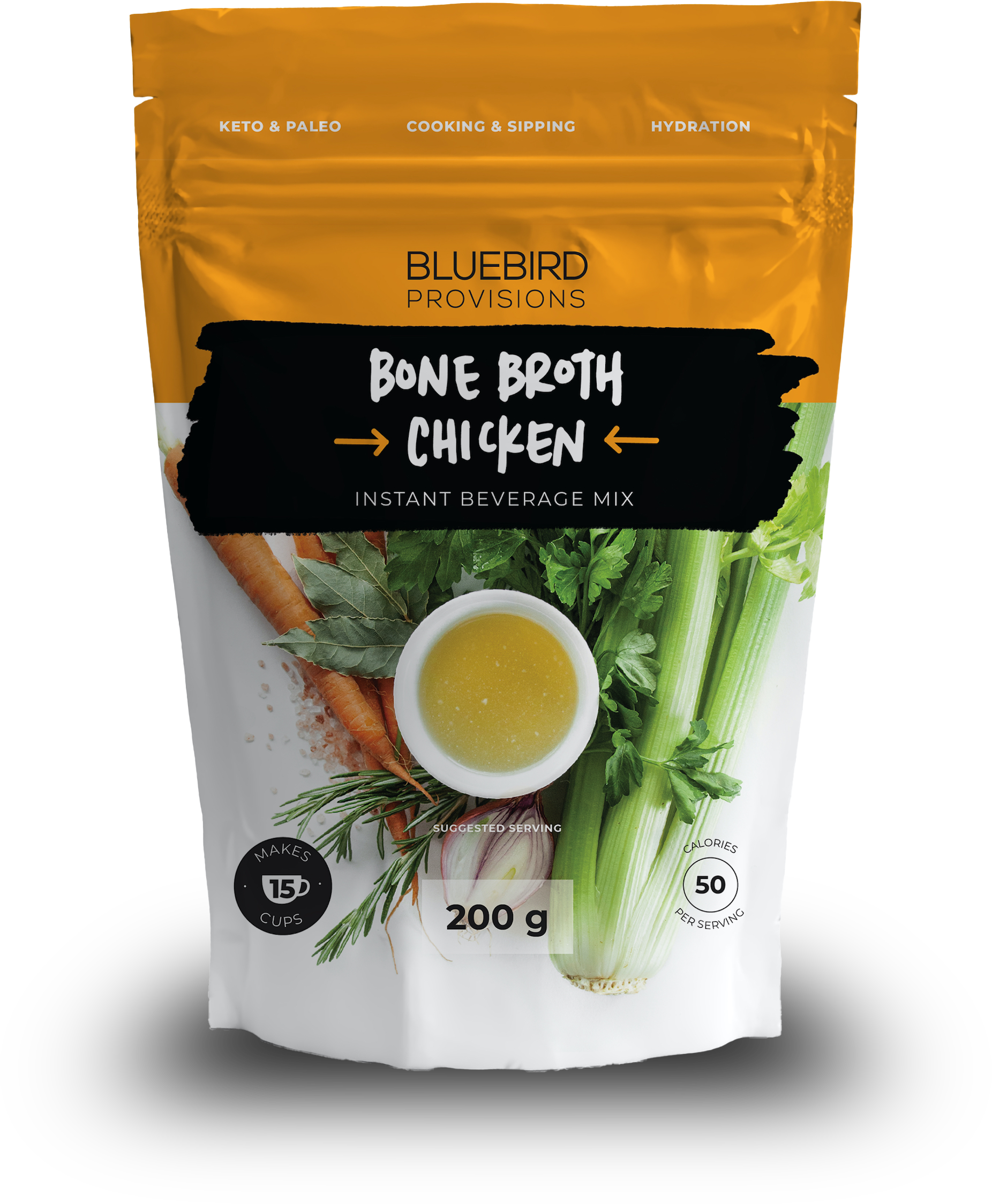
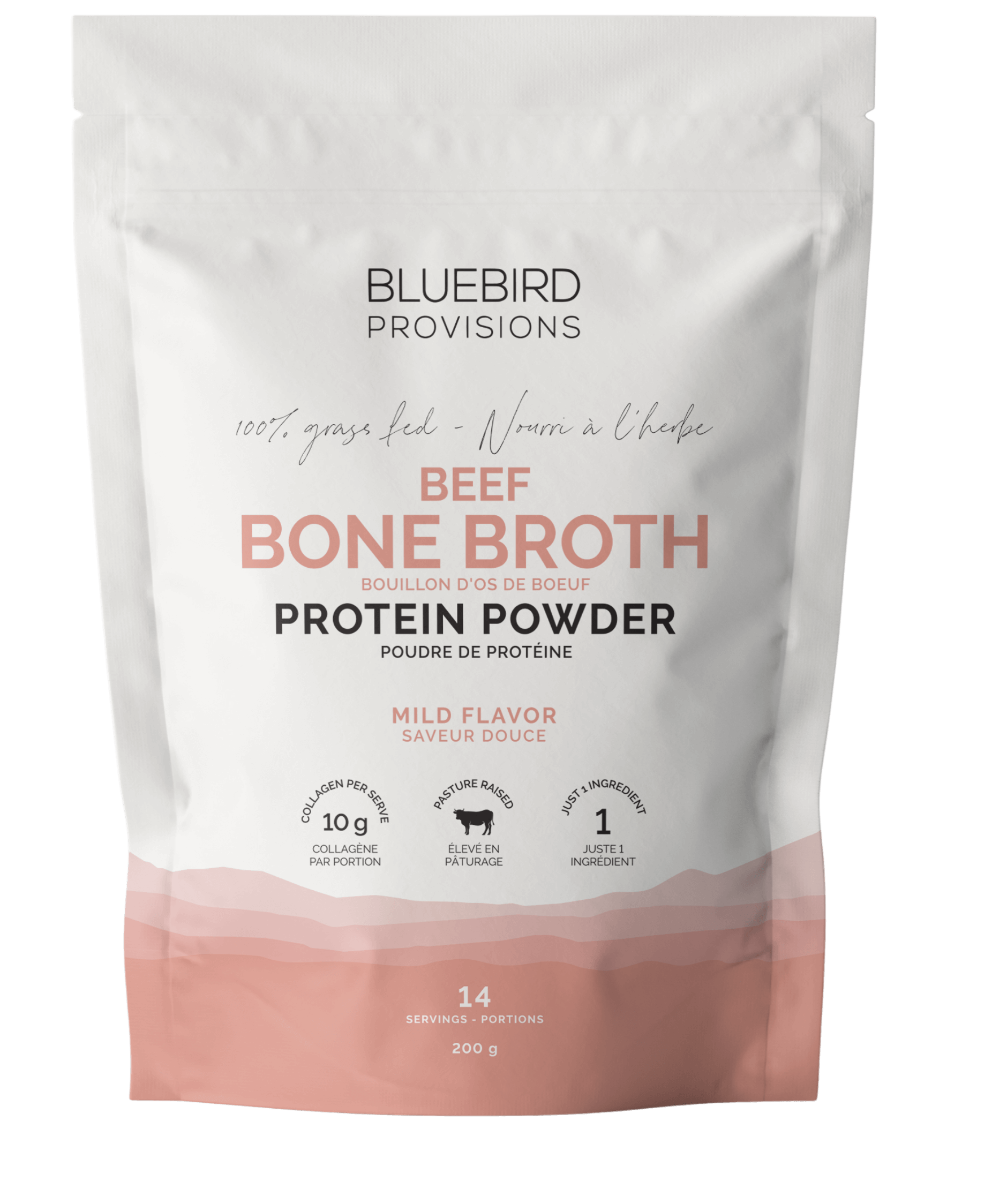










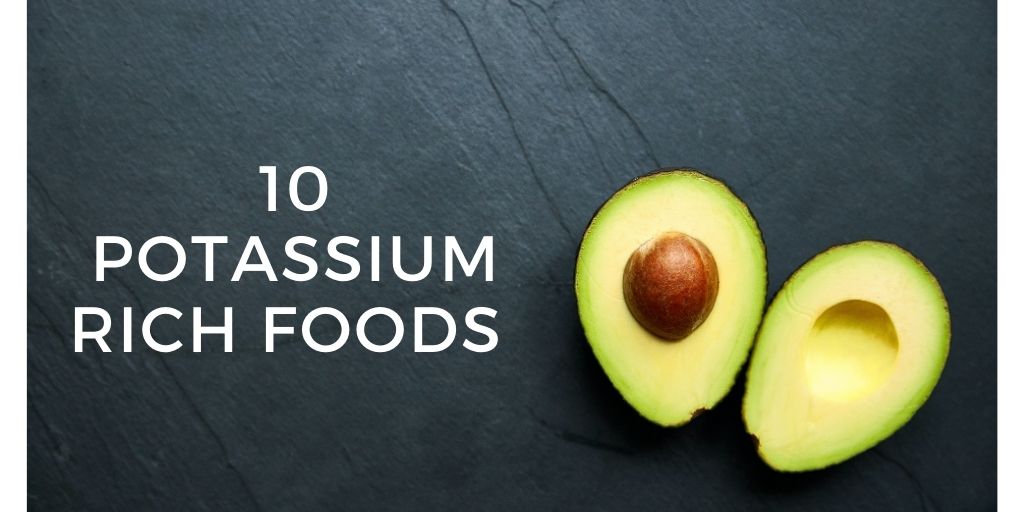

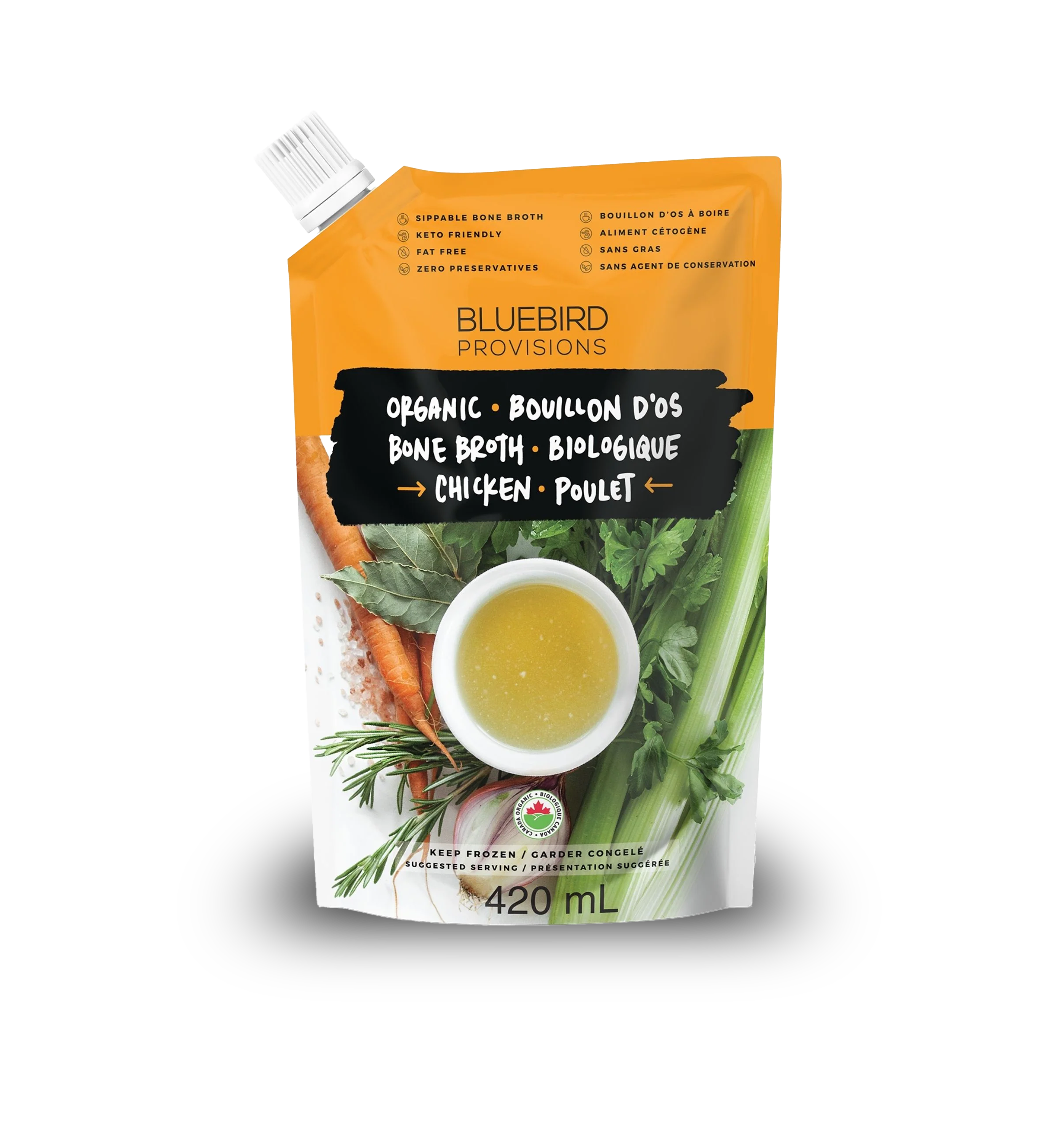
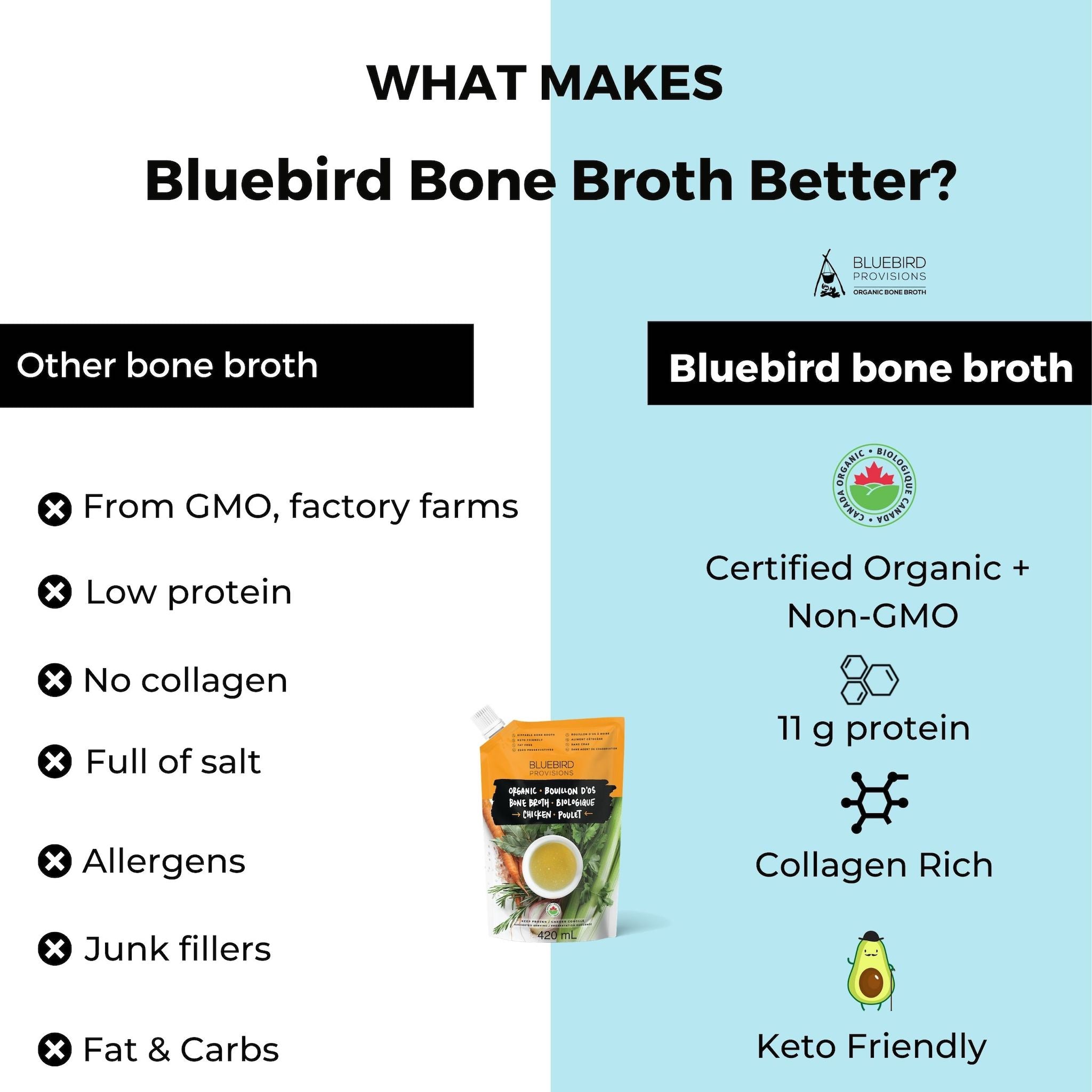
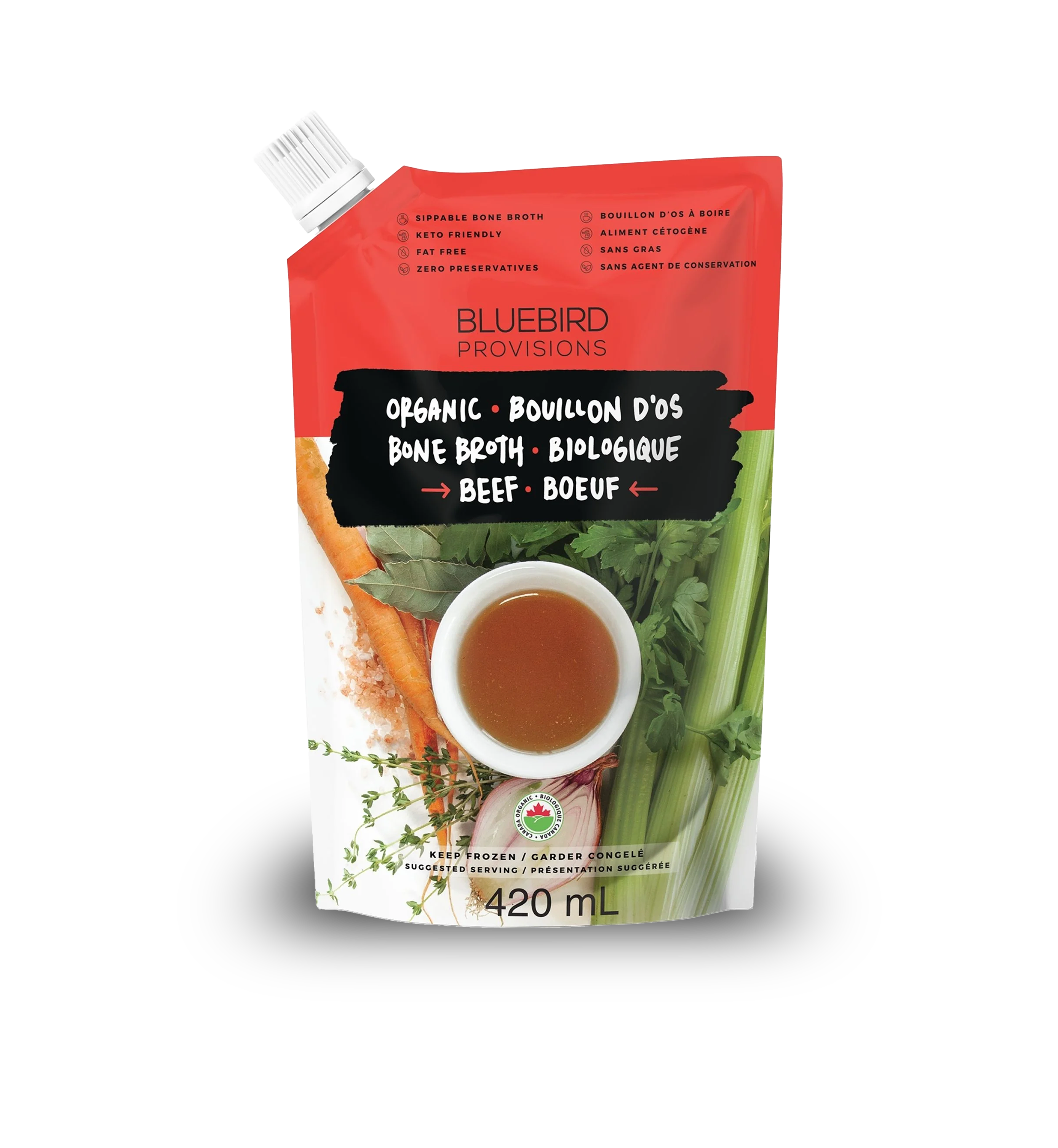
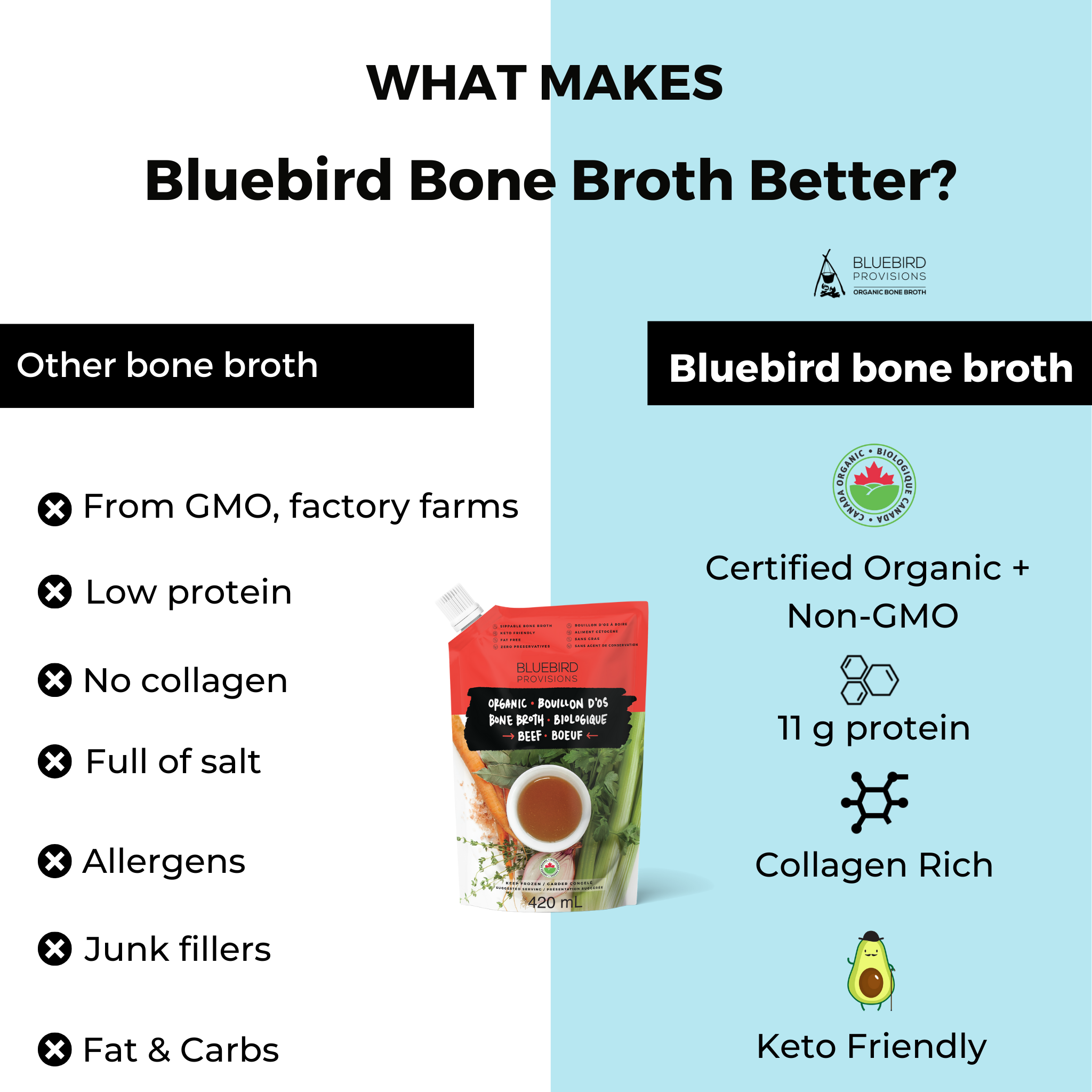
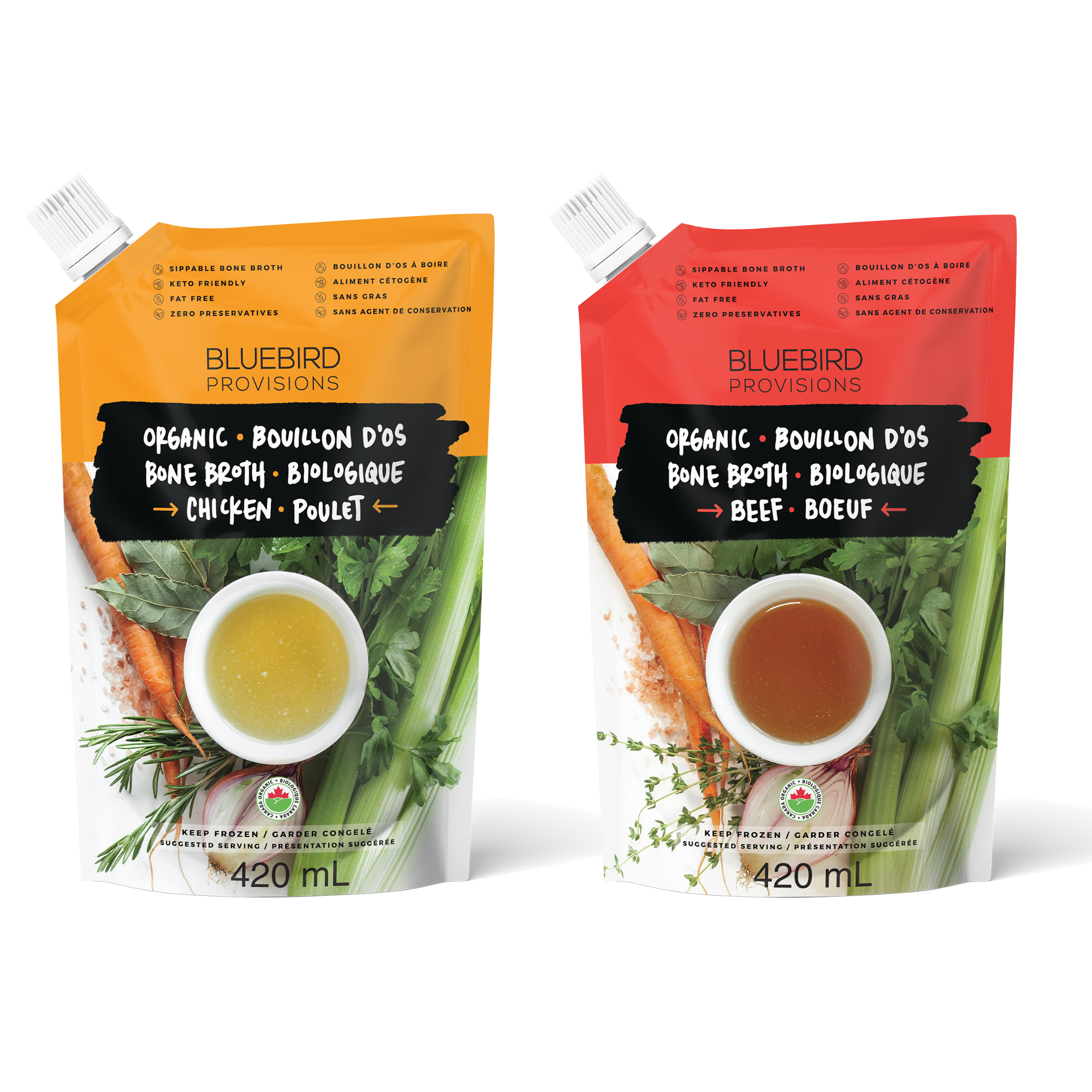

6 comments
Hi Mytee,
Knowledge is power! I commend you for doing your own research to find what works for you.
Connor at Bluebird Provisions
I don’t think asking your doctor does much good. But I understand you must state that. I was maried to a doctor that used his nutrition class to do other class work or rest. Even the profesor did not care. He passed away from a heart attack at age 38. And he only liked to eat steak and potatoes. I believe most doctors know very little about nutrition. I’m now 70 years old and I’m my own MD. I do my own research and I’m healthier than most of my age, I must be doing something right.
Mytee
Hi Julie,
I would stick with the diet changes you have made and see how you feel after a month or doing so. You don’t necessarily need any magnesium supplements if you are getting enough from your diet. It it not a panacea but a small part of the overall health and wellness picture.
connor
Connor at Bluebird Provisions
I am a 59 y.o. post menopausal female who is obese with Type Ii Diabetes, hypertension, an enlarged heart, a family history of heart disease, sciatica,, & neuropathy who also suffers from restless leg syndrome causing problems with sleeping at night. My diet includes lots of fatty fish, greens, seeds, and nuts. I also supplement with a quality Magnesium by BioOptimizer morning and night. Do I need a better magnesium sipplement? Dr. Livingood sells a magnesium roll on that absorbs better through the skin. Should I go with that instead or in addition to the BioOptimizer? Health wise I am currently a trainwreck
Julie A. Barrows
Hi Alex,
Thanks for your comment. I used Nutrition Data to calculate the values of magnesium in these foods.
Hope this helps and let me know if you have any questions.
connor
Connor at Bluebird Provisions
I was wondering where these values come from? When comparing it to the USDA, it does not line up. I would love to know where this information came from. Thank you.
Alex Preston
Leave a comment
This site is protected by hCaptcha and the hCaptcha Privacy Policy and Terms of Service apply.